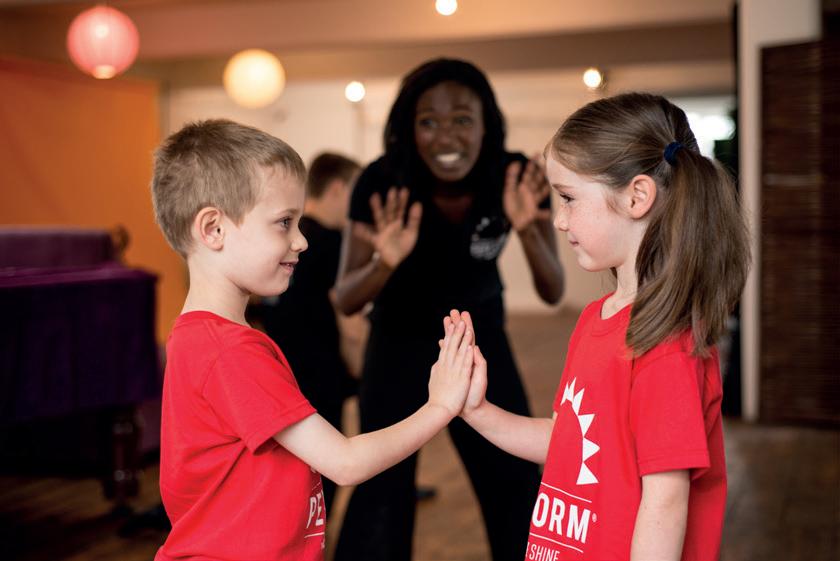
8 minute read
News & Views
News & Views Does Covid increase allergies?
If you feel like you have had more allergies and greater reactions to food and the environment since having Covid, then you are certainly not alone.
Advertisement
We have seen countless people whose allergies have been exacerbated or reignited since contracting the virus. We now see many babies with complex multiple allergies and food/environmental reactions whose mummies had Covid when they were pregnant or during the first trimester. So, I suspect this pesky virus is upregulating allergies in both mother and baby. Not just the classic peanut, egg and milk allergies but an increase in reactions to “healthy” foods like tomatoes, avocadoes and bananas! Random reactions to household cleaning products and skincare products.
Symptoms vary from classic allergy reactions like hives and swelling and sneezing through to more generalised rashes, feeling hot, fatigue, dizziness, nausea, muscle aches and pain, chest tightness and brain fog. It can affect sleep patterns and there can be lots of night waking.
This is because Coronavirus is known to cause a cytokine inflammatory storm which leads to mast cell activation and histamine release. There are several papers published on Pubmed about this phenomenon, and it seems to play a big role in those with Long Covid.
If you feel you are reacting to more foods/ environmental chemicals since having Covid, then you might want to consider some help from Mother Nature with some changes from a nutritional perspective. • Vitamin C is a key nutrient for mast cell stabilisation • Magnesium helps make DAO (the digestive enzyme, diamine oxidase) which helps to break down histamine in the gut • Vitamin B6 again helps to make DAO • Try mushrooms such as Reishi, Cordyceps,
Maitake and Agaricusblazei – these calm an overreactive immune system down • Quercetin stabilises the mast cell membranes & therefore reduces the release of histamine.
Lucinda Miller is the clinical lead of NatureDoc Clinic, a UK-wide nutrition clinic specialising in women’s and child nutrition. She also runs NatureDoc.Shop online as well as being an author of two family cookbooks, The Good Stuff and I Can’t Believe It’s Baby Food.


Help fund vital research by joining Wear A Hat Day!
Join thousands of children, parents and teachers on Friday 25th March for Wear A Hat Day– a great way to bring people together and raise vital funds for leading charity Brain Tumour Research.
Register your school, community or family event today: www.wearahatday.org and we’ll send you a free fundraising pack!
Coming at the end of March, Brain Tumour Awareness Month, several celebrities are supporting this hat tastic campaign.
The latest set of collectable Wear A Hat Day pin badges have a regal theme in celebration of the Queen’s Platinum Jubilee year. Order your box of badges to sell during registration!
Brain tumours kill more children and adults under the age of 40 than any other cancer. This is unacceptable and Brain Tumour Research is determined to change this. Funds raised from Wear A Hat Day will help towards establishing a new Research Centre of Excellence. www.wearahatday.org
St Mary’s Preschool opening is historic moment for the school
A new Preschool at St Mary’s, Cambridge, has opened for the academic year 21/22 - extending the independent school’s offering to girls aged as young as three for the first time in its 123-year history.
The Preschool, located on Chaucer Road, is set in the grounds of St Mary’s Junior School. An existing building was reconfigured, creating an Early Years Centre that includes space for Preschool, Reception and Year One students.
The three dedicated areas include a large room for free-flow activities for all Early Years children, which also acts as a base for Preschool pupils; a smaller room for structured teaching and Reception class activities; and a Year One classroom.
Jo Christian, Head of Juniors at St Mary’s, said: “It’s wonderful to have our new Preschool cohort in situ. Having a Preschool on-site ensures an even smoother transition into the Junior School and we can’t wait to see how our new girls flourish here at St Mary’s.”
Children attending St Mary’s Preschool follow individualised learning programmes tailored to their own developmental needs. Learning is predominantly based on experiential play, with support and challenge activities provided by dedicated Preschool teachers. There is some direct teaching, in small groups, with a focus on early phonics skills and mathematics, and lessons from specialist teachers, including computer science, music and woodwork.
To find out more go to: www.stmaryscambridge.co.uk/ or contact: admissions@stmaryscambridge.co.uk
Stimulating and challenging at Chestnut Nursery
Selecting a nursery for your child is one of the most important decisions a parent can make. Chestnut Nursery Schools provide high quality childcare and pre-school education to meet the most exacting standards. They pride themselves on the level of care and attention your child will receive under their supervision. All activities are carefully planned from the Early Years Foundation Stage to meet every child’s individual needs, activities are stimulating, challenging and progressive. At Chestnut Nursery Schools, your child’s development, both mentally and physically, is incredibly important. Your child will be carefully observed, and their progress recorded, so that the next stage of activities can be planned for.
To find out more or arrange a visit go to www.chestnut-nursery.co.uk


THE CHAIR THAT GROWS WITH THE CHILD IS A CHAIR FOR LIFE
Created by Norwegian designer Peter Opsvik in 1972, the Tripp Trapp® - the chair that grows with the child - revolutionized the entire children’s seating category. Brilliant in its simplicity, it is designed for every stage of childhood and beyond.
For over 40 years, millions of children around the world have grown-up using this iconic chair. The intelligent, adjustable design allows freedom of movement with both depth- and height adjustable seat and footplates. When adjusted correctly, your child is ensured a comfortable and ergonomic seating position at any age.
For more information on Stokke, visit www.stokke.com
Children’s Mental Health Week 2022
From 7th to 13th February, families across the UK are encouraged to take part in Children’s Mental Health Week with the theme Growing Together.
Growing Together is about growing emotionally and finding ways to help each other do the same. Challenges and setbacks can help us to grow and adapt and trying new things can help us to move beyond our comfort zone into a new realm of possibility and potential.
Run by the children’s mental health charity Place2Be, children (and adults) are being asked to consider how they’ve grown, what they need to help them grow and how they can help others to grow too.
Around five children in every classroom have a mental health problem and many more struggle with challenges from bullying to bereavement.
Help raise funds to enable Place2Be to reach more people by organising a Dress to Express fundraiser.
Find FREE resources for parents and carers and more information at www.childrensmentalhealthweek.org.uk

News & Views Happy, Confident New Year from PERFORM
Perform, the UK’s biggest centrally run
drama school, is getting 2022 off to a flying start with a new term of classes focusing on building confidence and social skills.
How have your children adjusted after the pandemic? Many have struggled to reconnect and reestablish their old friendships and confidence. Child psychologist and author, Linda Blair, says that classes like these ‘can help children recover from social isolation as they encourage communication and effective social interactions. Drama helps a child’s ability to understand and interpret things like eye contact and can help in countless other ways both socially and cognitively.’
Fortunately, Perform classes are packed with confidence-boosting drama-based games and activities, allowing every child to shine as we explore two exciting termly themes.
Children ages 4 to 7 will trek off on a jungle adventure while ages 7 to 12 enjoy a thrilling adaptation of Romeo and Juliet. What’s more, Perform’s jungle theme becomes a West End musical during February half-term, featuring a professional adult cast, stunning costumes and fabulous music. Visit junglerumble.show
To book a no-obligation FREE trial at Hills Road Sports Centre, Newnham Croft Primary School or St. Andrews Church Hall, Chesterton visit www.perform.org.uk/try using CAM70222 for a £40 discount when you book by 7th February.
More flexible approach to school starting age
Being young in a school class puts a child at a long-term disadvantage compared to their older peers according to new research.
The study by Kings College London, found that when children are the youngest in their class, they have a greater chance of experiencing educational problems, as well as social and even emotional complications. These findings could help parents considering when to enrol their child in school.
Senior author Professor Jonna Kuntsi said ‘The difference between the youngest and oldest member of a class can be up to eleven months. In the early stages of childhood, this is a significant difference in terms of maturity, behaviour and cognitive abilities.’
The researchers are now calling for greater flexibility about school starting age.
More at www.kcl.ac.uk/news


More risky playgrounds are better for kids
The British Children's Play Survey revealed recently that British society is becoming more protective of children, at a detriment to their ability to manage risk and their overall mental and physical health.
David Ball, a Professor of Risk Management at Middlesex University, said UK playgrounds were ‘over-sterilised.’
‘If you look at them only as a series of potential dangers, you’re missing something important’ he said.
By contrast, in Germany, playgrounds are being built to be dangerous, forcing children to negotiate perilous obstacles while risking injury if they fall.
According to Professor Rolf Schwarz of Karlsruhe University of Education, who works with councils and playground designers to develop challenging obstacles, 'safe' playgrounds prevent kids from learning how to handle risk in the early stages of their development. 'If we want children to be prepared for risk, we need to allow them to come into contact with risk,' said the Professor.




